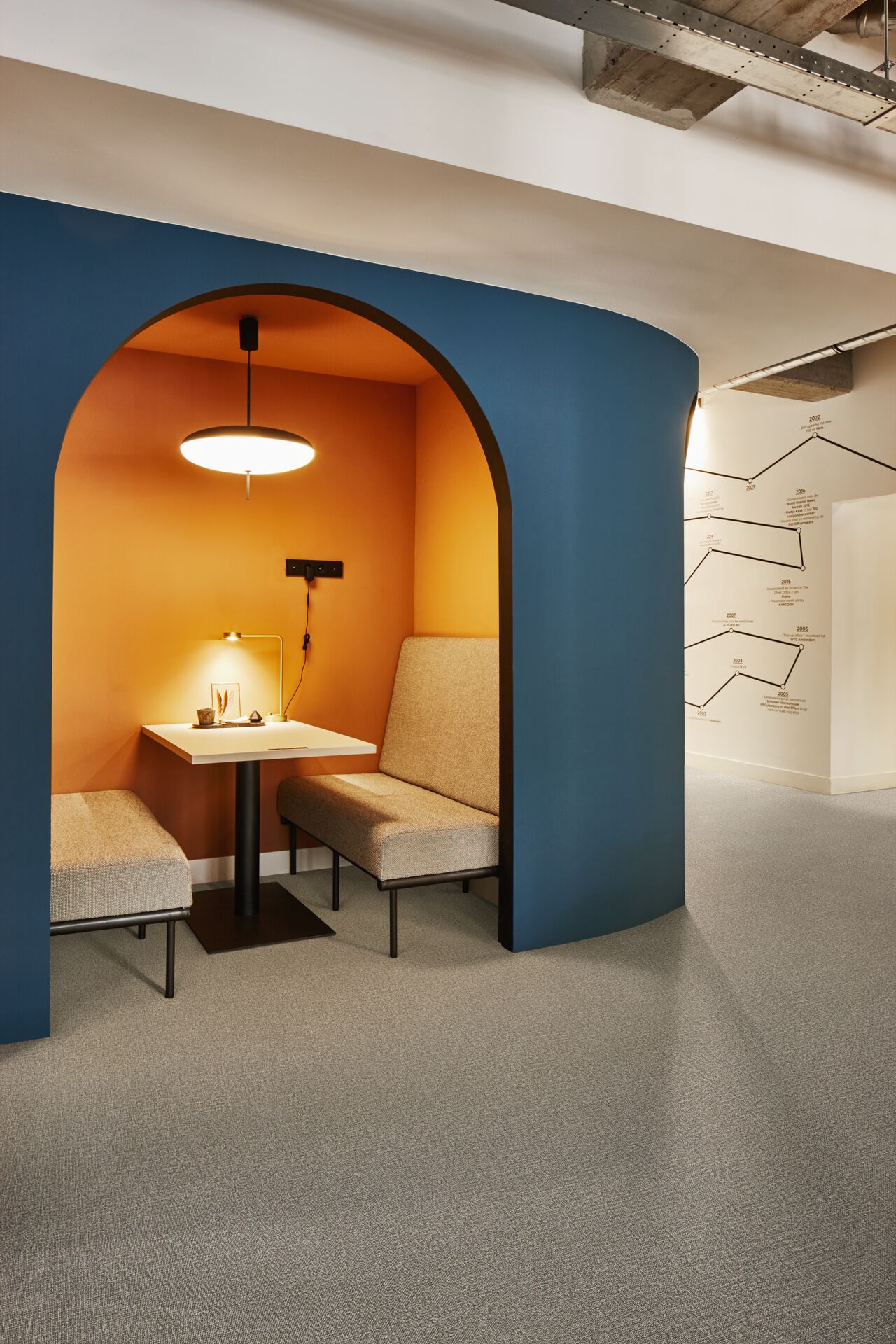Accessible Facilities for Autism – Bristol Airport
The business case for a more accessible travel experience is clear – but how can built environment professionals make public spaces such as airports less stressful...
Read Full Article
A new building design standard has been created to ensure that the built environment is accessible to both people with physical disabilities and neurodivergent people with sensory and information processing differences.
In response to a research study which explored how neurodivergent people experience the built environment, BSI, as the national standards body, has launched the first-of-its-kind-standard on the design of the built environment for a neurodiverse society.
"This PAS is an opportunity to ask everyone involved in the built environment to carefully consider this normal neurological diversity of humans rather than just meeting basic regulatory demands."
–Jean Hewitt
Technical Author of new PAS 6463 Standard
Neurodivergence includes people with autism, ADHD, dementia, and a range of other sensory and/or information-processing differences. With estimates suggesting that around 1 in 7 people in the UK are neurodivergent in some form, it’s clear that our buildings must ensure everyone is provided with an equal opportunity to work, live, and socialise comfortably.
The standard, PAS 6463, recognises that building designers and public planners have previously focussed on a neurotypical experience of the built environment. But a significant number of people find certain aspects of the built environment uncomfortable, distressing or a barrier to their use.
Certain features of buildings can cause “sensory overload”, where stress is caused by what feels like a bombardment of sensory stimuli. This additional cognitive load can lead to increased anxiety, fatigue and, in some cases, potential behavioural changes and poor mental health.
Many of these potential negative impacts can be eliminated, reduced, or adjusted through thoughtful design and management, the writers of the new standard argue.
Jean Hewitt, a senior member of the inclusive design team at Buro Happold and Technical Author of the PAS, said: “In addition to designing places to accommodate our diversity in form, size and physical ability, there is also a profound need to design for neurological difference.
Since my first involvement in this area in 2009, I have hoped for some progress for the many neurodivergent colleagues, friends, and family whose lives are unnecessarily blighted by places that don’t work for them. Some have a formal diagnosis, but many do not; there are also many neurotypical people more mildly but regularly affected by environments on a day-to-day basis, perhaps triggering unsteadiness, migraines or experiencing extra daily stress through elements that are not intuitive or comfortable for them.
“My learning throughout the process of developing this PAS leads me to believe at least 30% of the population are negatively impacted by elements that could so easily be adjusted or eliminated during design, procurement, and management without any cost implications.
“This PAS is an opportunity to ask everyone involved in the built environment to carefully consider this normal neurological diversity of humans rather than just meeting basic regulatory demands – places should be comfortable for everyone to visit and use without encountering emotional distress or difficulty. I’m very excited to have been involved in developing this guidance to help make this the case for many more people.”
The guidance contained within the new standard, applies to buildings and external spaces for public and commercial use, as well as residential accommodation for independent or supported living.
PAS 6463, “Design for the Mind – Neurodiversity and the Built Environment – Guide” can be downloaded here.
Picture: a photograph of a semi-enclosed meeting area with soft lighting, a desk and comfortable chairs. Image Credit: BSI
Article written by Ella Tansley | Published 26 October 2022
The business case for a more accessible travel experience is clear – but how can built environment professionals make public spaces such as airports less stressful...
Read Full ArticleAnalysis from the Association for Project Management suggests that neurodivergent staff could help businesses become more successful if workplaces were more...
Read Full ArticleParalympian Ellie Challis and her father were unable to access their Premier Inn hotel room due to a broken lift. As reported by the BBC, Ellie Challis, a Paralympic...
Read Full ArticleShane Manogue, CEO of W12 Group and Lovit Technologies, has been named as a Diversity in Construction Ambassador for 2023’s London Build Expo. Shane met up with...
Read Full ArticleA report commissioned by The National Federation of Builders shows that neurodiversity is not only common amongst construction workers, but being neurodivergent is...
Read Full ArticleThe Royal Institute of British Architects has published new guidance to ensure that inclusion and accessibility are considered at every stage of the design and...
Read Full ArticleChurchill Group has marked Neurodiversity Celebration Week 2023 by signing the Neurodiversity in Business charter and inviting Bianca Angelico to speak about her lived...
Read Full ArticleIn this Spotlight Interview, we speak to psychologist, entrepreneur and workplace wellbeing specialist Lee Chambers. Lee Chambers is the Founder of Essentialise...
Read Full ArticleBSI has launched PAS 1899:2022, Electric vehicles – Accessible charging – Specification, sponsored by the UK government and the charity,...
Read Full ArticleThe ISS Hub, a new global headquarter hub for the facility service provider ISS in Warsaw, has just been evaluated by accessibility assessment organisation Mobility...
Read Full Article